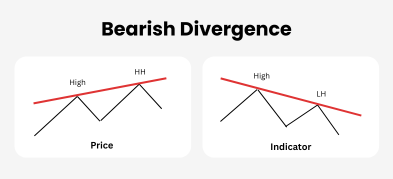Important Information
This website is managed by Ultima Markets’ international entities, and it’s important to emphasise that they are not subject to regulation by the FCA in the UK. Therefore, you must understand that you will not have the FCA’s protection when investing through this website – for example:
- You will not be guaranteed Negative Balance Protection
- You will not be protected by FCA’s leverage restrictions
- You will not have the right to settle disputes via the Financial Ombudsman Service (FOS)
- You will not be protected by Financial Services Compensation Scheme (FSCS)
- Any monies deposited will not be afforded the protection required under the FCA Client Assets Sourcebook. The level of protection for your funds will be determined by the regulations of the relevant local regulator.
Note: Ultima Markets is currently developing a dedicated website for UK clients and expects to onboard UK clients under FCA regulations in 2026.
If you would like to proceed and visit this website, you acknowledge and confirm the following:
- 1.The website is owned by Ultima Markets’ international entities and not by Ultima Markets UK Ltd, which is regulated by the FCA.
- 2.Ultima Markets Limited, or any of the Ultima Markets international entities, are neither based in the UK nor licensed by the FCA.
- 3.You are accessing the website at your own initiative and have not been solicited by Ultima Markets Limited in any way.
- 4.Investing through this website does not grant you the protections provided by the FCA.
- 5.Should you choose to invest through this website or with any of the international Ultima Markets entities, you will be subject to the rules and regulations of the relevant international regulatory authorities, not the FCA.
Ultima Markets wants to make it clear that we are duly licensed and authorised to offer the services and financial derivative products listed on our website. Individuals accessing this website and registering a trading account do so entirely of their own volition and without prior solicitation.
By confirming your decision to proceed with entering the website, you hereby affirm that this decision was solely initiated by you, and no solicitation has been made by any Ultima Markets entity.
I confirm my intention to proceed and enter this websiteOpendoor Stock Price Up: Buy, Sell or Hold?
Opendoor Technologies Inc. (NASDAQ: OPEN) recently saw its Opendoor stock price up dramatically.
Buy, Sell, or Hold Opendoor stock? Here’s a quick breakdown:
- Buy: If you’re a short-term trader riding momentum, Opendoor may present opportunities due to high volatility and social sentiment. Entry points should be managed with clear risk controls.
- Sell: If you bought during the earlier dip, the recent rally could be a good chance to lock in profits especially since the surge lacks earnings or housing data support.
- Hold: If you’re already invested for the long term and believe in the iBuying model, holding may be viable. But closely watch Opendoor’s path to profitability and market conditions.
Bottom line: The stock’s surge is driven more by retail speculation than fundamentals. Risk management is key. But what’s driving this move?
What Is Happening With Opendoor Technologies Inc. Stock?
On July 21, 2025, Opendoor stock surged more than 120% intraday before closing around $3.21, up ~43% on the day. This explosive move was not due to earnings or housing data but rather retail-driven sentiment. The catalyst came from viral mentions on Reddit and social platforms, along with bullish commentary from EMJ Capital’s Eric Jackson, who publicly called Opendoor a potential “100-bagger.”

Recently, a lot of people on Reddit (especially a group called WallStreetBets) started buying Opendoor stock and posting about it. That made even more people jump in and buy, which pushed the stock price up very quickly—kind of like what happened with GameStop in 2021.
Back in May, Opendoor got a warning from the Nasdaq stock exchange. Why? Because its stock price had fallen below $1 for 30 days in a row. According to Nasdaq rules, a company can be removed or “delisted” if its stock stays that low.
Nasdaq gave the company 180 days (about 6 months) to fix the situation. To avoid being kicked off the exchange, Opendoor’s stock price needs to stay above $1 for 10 days in a row.
Opendoor said: “If our stock price doesn’t go up naturally, we’ll do a reverse stock split.” That just means the company would combine shares to artificially raise the stock price. For example, 50 shares at $0.50 would become 1 share at $25. You wouldn’t lose money, but you’d have fewer shares at a higher price.
Because so many people started buying the stock, the price jumped over $4 in recent days. That might save the company from doing the reverse split and from getting delisted—as long as the price stays over $1 for at least 10 straight days.
Opendoor’s stock went up because of hype from Reddit. That unexpected rise might save the company from being removed from the stock exchange, which is very important for its future.
Why Is Opendoor Stock Price Up?
SevSeveral speculative and technical factors contributed to the recent surge:
- Retail Momentum: Opendoor became a trending topic across Reddit, Stocktwits, and other social platforms, leading to a spike in buying from retail traders following the meme-stock pattern.
- Short Squeeze Conditions: With short interest exceeding 20% of the float, aggressive buying forced short sellers to cover positions, adding to upward pressure.
- No Earnings Trigger: The stock’s rally was not backed by any earnings beat or financial update. Instead, speculative sentiment dominated the narrative.
- Technical Breakout Explained: As price began to climb, it breached key resistance levels particularly around $2.75 and $3.00, which had previously acted as psychological and technical barriers. Once broken, these levels triggered additional momentum buying from traders using algorithmic or technical strategies. The breakout pushed the stock into a higher trading range, further amplified by fear of missing out (FOMO) and momentum-chasing behavior.

Opendoor Stock 5 Year Forecast
Most analysts remain cautious on Opendoor’s long-term outlook due to persistent unprofitability and uncertain housing market conditions:
- Average Price Target (12-month): Around $1.55, with a high-end target of $1.85, according to MarketBeat consensus.
- Revenue Forecasts: Analysts expect revenue growth to be slow and volatile, heavily dependent on real estate transaction volumes and mortgage rate trends.
- Profitability Timeline: Opendoor is not expected to achieve sustained profitability before 2027 unless it significantly reduces operating costs or improves gross margins.
- Business Model Risks: The iBuying model remains controversial and cyclical. High inventory turnover is essential, and any housing market cooling can severely impact cash flow.
- Macro Sensitivity: Rising interest rates, tightening credit, or falling home prices could derail Opendoor’s growth.
That said, bulls argue that if the company adapts with better AI-driven pricing, lower acquisition costs, and tight cost control, it could survive the cycle and thrive by 2029. However, such outcomes are speculative and depend on external market conditions and management execution.
Over the next five years, Opendoor’s performance will likely remain highly sensitive to U.S. housing dynamics, technology adoption, and its ability to operate efficiently in both hot and cold markets.

What Is the Sentiment of Opendoor Technologies Inc. Stock?
- Mixed to Bullish: Retail sentiment is highly bullish, while institutional analysts remain neutral.
- High Volume: Daily trading volume exceeded 60 million shares, up from a 10-day average of 18 million.
- No Insider Buying: No new insider purchases reported during the rally.
Who Owns Opendoor Stocks?
Updated ownership breakdown:
- Vanguard Group: ~12%
- BlackRock: ~1.7% (down from over 6%)
- Sylebra Capital, State Street, Renaissance Technologies: Other major holders
- CEO Carrie Wheeler: Owns ~1.1% of total shares
- Total Insider Ownership: ~2%
Is Opendoor Technologies a Good Stock?
Opendoor Technologies may be attractive for short-term traders but remains risky for long-term investors. The stock recently surged on retail momentum and short-squeeze dynamics rather than strong fundamentals. Despite high trading volume and social media buzz, the company remains unprofitable with ongoing losses exceeding $368 million (TTM). Analysts are cautious due to its volatile business model, sensitivity to housing market conditions, and uncertain path to profitability.
From a trader’s perspective:
- Upside: High volatility and retail interest could support short-term moves.
- Risks: Company remains unprofitable with a net loss over $368 million TTM, and price spike was not fundamentally justified.
- Support Levels: Key zones at $1.80 and $0.92, resistance near $5.00 (200-week MA).
Key Events to Watch Next
Traders and investors should stay alert to several upcoming catalysts that may influence Opendoor’s next move:
- Q2 2025 Earnings Report – A surprisingly strong quarter could validate the bullish case and shift sentiment further.
- Reverse Stock Split Vote (July 28) – Approval or rejection could either stabilize share price dynamics or trigger additional volatility.
- U.S. Housing Market Data & Interest Rate Trends – Opendoor’s iBuying model is highly dependent on favorable home price and mortgage environments.
- Retail Sentiment & Social Metrics – Any decline in Reddit or X (formerly Twitter) engagement could signal weakening momentum and lead to a reversal.
Conclusion
The recent Opendoor stock price up move was sentiment-driven, not rooted in earnings or macro improvement. While it presents trading opportunities, the long-term fundamentals remain unchanged. Investors should treat this rally with caution and monitor key metrics like volume, institutional activity, and earnings performance.
Disclaimer: This content is provided for informational purposes only and does not constitute, and should not be construed as, financial, investment, or other professional advice. No statement or opinion contained here in should be considered a recommendation by Ultima Markets or the author regarding any specific investment product, strategy, or transaction. Readers are advised not to rely solely on this material when making investment decisions and should seek independent advice where appropriate.












